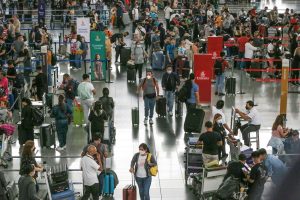Armenia, Eritrea, South Korea, Finland and Kazakhstan are all tipped to be the next hot ‘epic travel’ destinations for 2020 according to travel experts in this rapidly evolving travel niche.
Epic travel is defined as a new segment in travel for high net-worth individuals with a desire to push the boundaries and have unique experiences. They want more than just a holiday, according to the experts, and they’re often led by emotion.
Speaking during a panel discussion entitled Epic Travel: The New Must-Do Luxury Experience at WTM London, Adam Sebba, Chief Executive of Steppes Travel said: “People are not always asking for a destination, but they’re coming to us saying ‘I saw this on Instagram, where is it? I want to go there’, it’s very much emotion-led travel.”
The style of trip epic travel clients are looking for often results in highly tailored itineraries, recces of the trip beforehand and a huge amount of nous from the travel company.
People looking for one-off, epic travel experiences are also seeking an educational aspect – especially when they travel with their families – and itineraries that take a philanthropic approach.
WTM delegates later heard from speakers at the Destination Smart for a Healthy Future session, which looked at managing tourism growth, ensuring local residents are happy and being ‘destination smart’.
Dr Taleb Rifai, former Chairman of the International Advisory Board for the International Institute for Peace through Tourism (IIPT), and former secretary general of the UNWTO, said over tourism did not exist – there either were tourists or there weren’t.
“There are management challenges, but tourism needs to be managed,” he said.
Dr Rifai talked about work he has done with destinations to spread the benefits of tourism and ensure residents and local businesses benefit from tourist numbers, rather than start to resent them.
In Venice he came up with the idea of giving cruise passengers free bus passes to allow them to visit the surrounding vineyards and hills, areas which had hitherto missed out on the millions of cruise visitors that flocked to the Italian city.
Another idea to encourage visitor spend, particularly from cruise passengers who enjoy all-inclusive onboard dining, was to devise a voucher scheme allowing passengers to get a discount at local restaurants, paying the cruiseline a commission.








